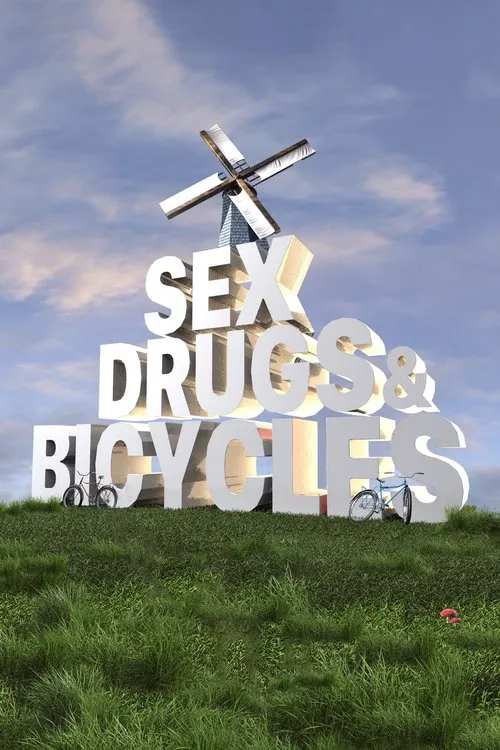Sex, Drugs & Bicycles

Plot
Directed by Mike McCormack and narrated by Nick Nemeroff, Sex, Drugs & Bicycles is a 2018 documentary film that embarks on an expedition to uncover the truth about a seemingly utopian society. The film, inspired by a Danish documentary from 2014 called "Into a Good Life," delves into the lives of a group of Icelanders who have adopted an experimental approach to happiness. The documentary begins with a provocative assertion: that the fear-mongering in the West about the adoption of a Nordic model of social welfare is a ruse. Instead of leading to stagnation and moral decay, Iceland's experiment with a universal basic income (UBI) and extended social benefits has produced a population that is arguably happier, healthier, and more fulfilled than its Western counterparts. The filmmakers arrive in Iceland just as a group of locals are participating in a year-long social experiment. They have agreed to receive an unconditional monthly stipend, which provides them with a guaranteed minimum income equivalent to about $1,200. This allows them to pursue their passions without the burden of a traditional 9-to-5 job. The crew spends several weeks getting to know these individuals and their stories. There's Bjarni, a struggling musician who has always had a dream of composing music full-time; Sigríður, a single mom working as a freelancer who is trying to balance her career with caring for her young child; and Hulda, a stay-at-home dad who has been able to devote himself to raising his family full-time. As the documentary follows these characters, it becomes clear that their lives have been transformed. With the security of a guaranteed income, they are able to pursue their passions and live a more authentic life. They report feeling less stressed, less anxious, and more connected to their communities. One of the primary architects of Iceland's experiment is Gudmundur Kristinn Gunnarsson, a professor of economics who has long advocated for a more equitable distribution of wealth. Gunnarsson sees the experiment as an opportunity to prove that people will continue to strive and thrive even in the absence of a traditional work ethic. Throughout the film, the crew encounters a range of opinions from Icelanders about the experiment and its implications. Some are concerned that the UBI is creating a culture of dependency, while others see it as a necessary measure to ensure that everyone has a basic level of prosperity. As the documentary progresses, the filmmakers begin to raise more profound questions about the nature of happiness and fulfillment. Are these Icelanders truly happier than people in other parts of the world? Or is this just a superficial illusion? One of the most compelling aspects of the documentary is its nuanced portrayal of the complexities of this experiment. The filmmakers refuse to offer easy answers or simplistic solutions, instead capturing the messy, multifaceted reality of human experience. Ultimately, Sex, Drugs & Bicycles is a testament to the power of social experimentation and the potential for individuals and communities to redefine what it means to live a good life. The documentary does not provide a definitive answer to its provocative question, but instead offers a rich, nuanced exploration of a society that is rethinking the very notion of happiness and fulfillment. The film raises profound questions about the relationship between economics, politics, and human well-being, and encourages viewers to think critically about the values and assumptions that underlie our social and economic systems. It is a deeply humanizing and thought-provoking film that will leave audiences inspired, challenged, and perhaps even a little changed.
Reviews
Recommendations




